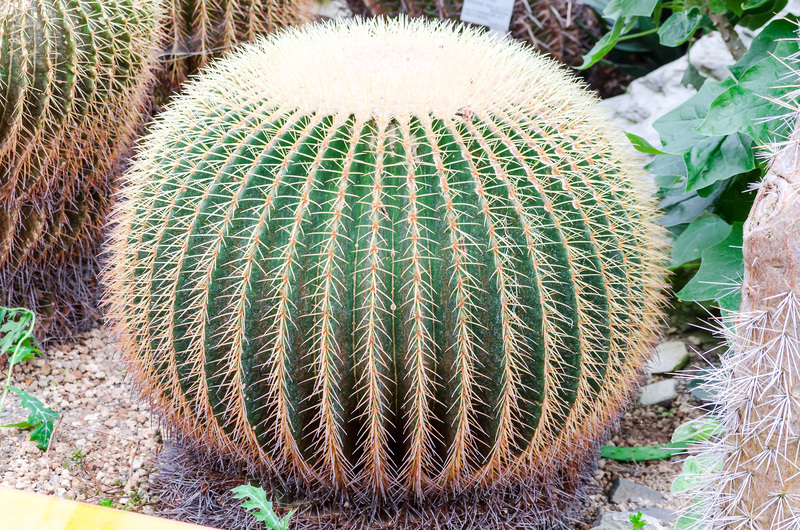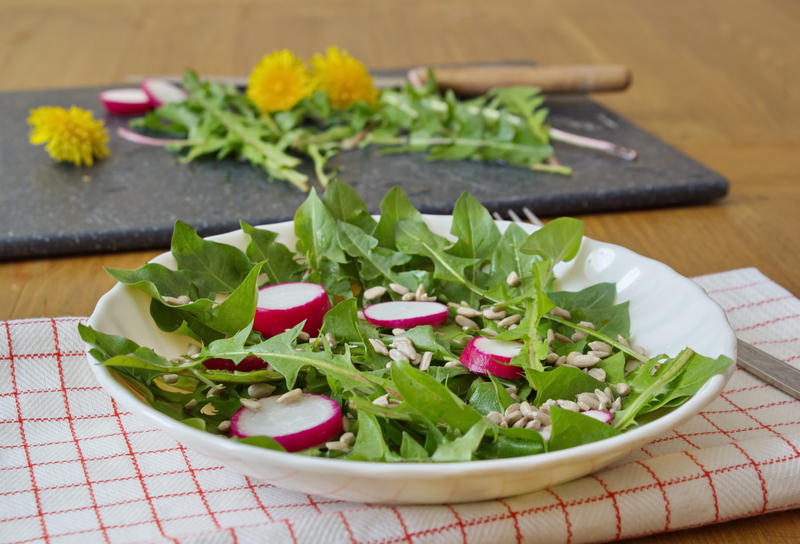Sustainable Practices: Waste Transformed into Vital Soil
Posted on 25/09/2025
Sustainable Practices: Waste Transformed into Vital Soil
Every year, millions of tons of organic and inorganic waste end up in landfills, creating environmental hazards and squandering valuable resources. Through sustainable practices, however, this so-called "waste" can be ingeniously transformed into vital soil, nourishing ecosystems, gardens, and farms alike.

Why Transforming Waste Into Soil Matters
The linear economy mindset--where resources are extracted, used, and discarded--has led to overfilled landfills and depleted soils. Fortunately, transforming waste into soil via composting, vermiculture, biochar production, and innovative recycling closes the loop. Here's why it matters:
- Reduces landfill waste: Diverts organic scraps, yard trimmings, and food leftovers from landfills.
- Enriches soil quality: Sustainable soil-building recycles essential nutrients, creating healthier plants and more resilient crops.
- Mitigates greenhouse gases: Composting and other waste-to-soil techniques decrease methane emissions compared to conventional waste management.
- Promotes local food systems: Fresh, nutrient-rich soil supports urban and community agriculture, fostering food security.
- Supports biodiversity: Healthy soils host diverse microbial and insect life, strengthening entire ecosystems.
Understanding the Process: From Waste to Soil
There are several proven sustainable methods for converting waste into vital, fertile soil. Below, we explore the science and practical steps behind each technique.
1. Composting: The Cornerstone of Sustainable Waste Management
Composting is the aerobic decomposition of organic matter by microorganisms. By combining "green" nitrogen-rich waste (like food scraps and lawn clippings) with "brown" carbon-rich waste (such as leaves or shredded cardboard), communities and households can transform everyday garbage into black gold--nutrient-dense compost.
- What to compost: Vegetables, fruit peels, coffee grounds, eggshells, garden waste, shredded paper, and cardboard.
- What to avoid: Meat, dairy, oily foods (these produce odors and attract pests), diseased plants, and synthetic materials.
Compost pile basics:
- Location: Place compost bins or piles in a shady, well-drained spot.
- Layering: Alternate green and brown waste for optimal decomposition.
- Moisture and aeration: Keep the pile moist but not soggy, and turn it regularly to introduce oxygen.
- Timeframe: Within a few months to a year, you'll have rich, crumbly compost ready for garden use.
*Benefits of composting*: Compost returns organic matter and beneficial microbes to the soil, enhancing **moisture retention**, **structure**, and **nutrient availability**. Around the world, farms, schools, and cities are adopting composting as a fundamental sustainable practice.
2. Vermiculture: Harnessing the Power of Worms
Vermiculture (also known as worm composting) uses specific worms, typically red wigglers, to digest organic waste. The result is vermicast, a highly fertile soil amendment brimming with nutrients and beneficial bacteria.
How vermiculture works:- Set up: Use a well-ventilated bin with bedding like shredded newspaper, coconut coir, or leaves.
- Add worms: Red wigglers (Eisenia fetida) are best suited for composting food waste.
- Feed: Add small regular amounts of fruit and veggie scraps (avoid citrus, onions, and spicy foods).
- Harvest: Worm castings appear as dark, earthy, granular soil--perfect for gardens and potted plants.
Vermiculture is ideal for apartments, schools, and urban gardeners with limited space, offering a low-odor, efficient method to transform waste into vital soil.
3. Bokashi: Fermented Composting for Diverse Waste Streams
Bokashi is a Japanese method of composting that employs beneficial microbes to ferment all kinds of organic waste--including meat and dairy. It uses an inoculated bran sprinkled over waste in airtight buckets, encouraging anaerobic fermentation.
- What sets Bokashi apart: Handles a wider variety of food waste than traditional composting.
- Fermentation, not rot: By fermenting instead of decaying, odors are minimized and nutrients preserved.
- Final step: Bokashi pre-compost must be buried in soil or added to a compost pile to complete decomposition.
This accelerated process is especially suitable for households and businesses aiming for a more holistic, waste-to-soil solution.
4. Biochar: Turning Waste Biomass into a Soil Revolutionizer
Biochar is a type of charcoal created by pyrolyzing (burning in a low-oxygen environment) organic waste like wood, crop residues, or nutshells. When added to soil, biochar enhances fertility, boosts water retention, and locks up carbon, mitigating climate change.
- Feedstocks: Wood chips, agricultural residue, forest debris.
- Process: Pyrolysis at 350-700?C in specialized kilns.
- Soil benefits: Increases cation exchange, supports microbial communities, sequesters carbon for centuries.
Biochar's transformative potential is being recognized by farmers, policymakers, and scientists striving for sustainable, regenerative agriculture.
5. Municipal and Industrial Composting: Scaling Up Sustainable Soil Creation
Cities and industries are crucial players in the waste-to-soil movement. Modern composting facilities process food scraps, yard waste, and even some biodegradable plastics at a massive scale, producing commercial compost for parks, landscaping, and agriculture.
- Collection: Curbside green bins, centralized drop-offs, and business food waste programs.
- Processing: Aerated, temperature-controlled windrows or in-vessel composters speed up decomposition.
- End products: High-quality compost or soil amendments sold to local farms, gardeners, and landscapers.
These sustainable practices dramatically reduce landfill use, support the circular economy, and produce vital soil on a community-wide scale.
The Hidden Benefits Of Creating Vital Soil From Waste
Beyond resisting soil erosion and restoring nutrients, soil made from waste offers a cascade of ecological, social, and economic benefits:
- Improved water quality: Healthy soils filter pollutants, reducing runoff and protecting waterways.
- Reduced need for chemical fertilizers: Compost and vermicast naturally provide balanced nutrition for plants.
- Pest and disease resilience: Robust soil ecosystems suppress soil-borne pests and pathogens.
- Economic savings: Home gardeners and farmers alike reduce expenses on synthetic soil amendments.
- Climate action: Each ton of organic waste composted or biocharred locks away carbon and cuts methane emissions.
How You Can Start: Waste Transformation at Home and In Your Community
Anyone can join the sustainable soil movement. Here's how individuals, schools, and neighborhoods can make a difference:
Tips For Composting At Home
- Begin a kitchen scrap bin: Set aside a sealed container for peels, coffee grounds, and eggshells.
- Choose your method: Traditional backyard bin, indoor worm bin, or Bokashi bucket--find what suits your space and lifestyle.
- Join or start a community garden: Share resources, swap compost, and learn from fellow gardeners.
- Support local composting: Participate in city-wide green waste programs or lobby for better collection services.
- Pro tip: Crush eggshells for calcium, add dry leaves or cardboard to balance wet kitchen waste, and avoid overloading your compost.
Engaging Schools, Businesses, and Government
- Educational programs: Teach children and staff the science and art of composting, vermiculture, and soil stewardship.
- Composting at scale: Restaurants, cafeterias, and offices can partner with local composters or install on-site solutions.
- Policy advocacy: Support landfill diversion mandates, compost use standards, and infrastructure grants.
Case Studies: Waste-To-Soil Solutions In Action
San Francisco, USA: A Compost Leader
The San Francisco composting program diverts over 650 tons of organic waste daily, supplying farmers in California with nutrient-rich compost. Residents are required to separate their food scraps, which are converted into vital soil for vineyards and orchards--a shining example of sustainable urban waste management.
Seoul, South Korea: Food Waste Innovation
Seoul mandates food waste recycling through high-tech, pay-as-you-throw bins. Collected waste is composted or fed to livestock, drastically decreasing landfill reliance and restoring nutrients to local soils.
Rural India: Kitchen Waste to Village Wealth
In many Indian villages, women's cooperatives collect kitchen scraps for communal vermicomposting. The resulting fertile soil boosts crop yields, enriches community gardens, and reduces chemical fertilizer use.
Urban Gardens Worldwide
City dwellers from New York to Nairobi are embracing waste-to-soil initiatives, proving that sustainable soil transformation is possible--even in dense urban environments.

Frequently Asked Questions: Transforming Waste Into Life-Giving Soil
- Is it safe to use compost made from food waste? Absolutely. When properly composted, harmful pathogens are destroyed, and the resulting soil is safe and nutritious for all plants.
- How long does it take for waste to become soil? Depending on the method and conditions, it can take from several weeks (vermiculture, Bokashi) to a year (traditional composting).
- What can I do if I don't have a garden? Find local composting drop-offs, participate in community gardens, or use finished compost for houseplants or to benefit neighborhood green spaces.
- Can composting reduce my carbon footprint? Yes. Composting cuts methane generated by landfills, sequesters carbon in soil, and reduces transportation emissions by processing waste locally.
Sustainable Soil Creation: Growing a Greener Future
In transforming waste into life-enriching soil, we participate in one of nature's most elegant cycles. These sustainable practices protect the planet, grow healthier food, and build communities resilient to climate change. Whether at home or city scale, every banana peel turned into compost and every leaf added to a vermiculture bin represents a step toward a future where waste is never wasted--but instead regenerated into the vital soil upon which all life depends.
Ready to join the movement? Start today, and help transform yesterday's waste into tomorrow's abundance--one shovel of soil at a time.
Latest Posts
How to Create a Vibrant Garden Paradise for Kids
Gardening Essentials for Every Open-Air Lover
Elevate Your Garden Aesthetics with These 9 UK-Friendly Ground Cover Plants

